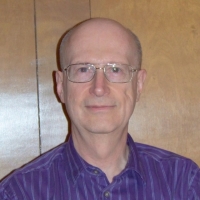Mennonite Health Journal
Articles on the intersection of faith and health
Integrated Healthcare: Reflections on Retreat 2012
Paul D. Leichty
As I reflect on Mennonite Healthcare Fellowship’s first “Convention Retreat,” I am grateful to be a part of the very important conversations in the church surrounding health and healthcare in our society today. This year’s theme, “Integrated Healthcare: Many Gifts, One Purpose,” focused on healthcare in the United States. As it turned out, the landmark Supreme Court decision essentially upholding the Affordable Care Act (ACA) was announced the day before we gathered.
In our Saturday morning session, Jane Hiebert-White, Executive Publisher of the Health Affairs journal gave us a good overview of the implications of this decision and its impact on the ongoing movement in the U.S. toward healthcare reform. Doug Schwartzentruber’s Saturday evening presentation gave us further insight into the benefits of a multidisciplinary approach to cancer care.
Underlying both of these presentations as well as the weekend as a whole was a key issue: the cost of healthcare. The financial costs of our healthcare system are a huge driving factor behind both healthcare reform and the movement toward more “integration,” in all of the various ways in which that term is used.
Nowhere is cost a more complex and perplexing issue than at the end of life. Our current medical technology gives us unprecedented means of prolonging life. As Christians who recognize the God-given value of each human life, we want to do everything possible to bring our loved ones back to health and wholeness.
Yet, what is possible today is also very costly. The debate rages about who is ultimately going to pay those costs. The discussion brings up hard questions about whether it is worth hundreds of thousands of dollars to extend human life by a few months.
As I was absorbing the implications of the larger picture, what Jane Hiebert-White called “the 30,000 foot level,” I couldn’t help but think of back home and my neighbors across the street, at “ground level.” They were facing agonizing situations and choices around end of life care that my own family was facing just a year ago at this time.
In both cases, our elderly fathers (89 and 92) ended up in the hospital and eventually on a ventilator in the intensive care unit, the latter situation despite the fact that most family members felt that neither father would have wanted this. Yet, in each case, it happened because of (a) the high value we as a Christian family placed upon the life of our loved one, (b) the judgment of the physicians that there was a good chance of full recovery with a good quality of life, and (c) the fact that Medicare and insurance were covering the costs.
Yet, as our fathers alternately improved and declined, we also became aware that, in the final analysis, their lives, and indeed, all of our lives, are in God’s hands. Our belief in the resurrection means that physical death is not the ultimate tragedy, but rather, the gateway to eternal life. In light of our faith, we could not help but wonder, expressed out loud in our neighbor-to-neighbor conversations, whether the money to keep our fathers alive a few extra months wouldn’t have been better spent on those who went without even basic healthcare.
In the midst of my family journey, I stepped into my role as Executive Director of Mennonite Healthcare Fellowship. And, in the midst of my work for MHF, attending important Board meetings, planning the Retreat, and scheduling important conversations, I was called home to be with my father in the last two days of his earthly life in late February.
Thus, in the midst of the Retreat, I realized that while I was learning and reflecting on the “30,000 foot” level, my neighbor, a physician and MHF member, was also on the “ground level,” attending to his patients, his practice…and his own father.
As Christians, family members, and professionals, we deal with these hard issues on many levels. I feel privileged to be part of a Christian community that can encourage and support each other as we wrestle with these societal and yet very personal issues. I hope that MHF can play an important ongoing role in fostering that kind of community.
About the author
 Paul D. Leichty, M.Div. is Executive Director Emeritus, having served as the first Executive Director of Mennonite Healthcare Fellowship (MHF) from Sept. 2011 through May 2020. Paul has served as a pastor, church musician, computer support person, disabilities advocate, and administrator/organizer of a number of church-related ministries. Paul also served as Executive Director of Congregational Accessibility Network which was transformed in 2022-23 to Disability Ministry Network. He is a member of Agape Fellowship of the Mennonite Church in Williamsport, Pennsylvania where he lives with his wife, Twila Charles Leichty.
Paul D. Leichty, M.Div. is Executive Director Emeritus, having served as the first Executive Director of Mennonite Healthcare Fellowship (MHF) from Sept. 2011 through May 2020. Paul has served as a pastor, church musician, computer support person, disabilities advocate, and administrator/organizer of a number of church-related ministries. Paul also served as Executive Director of Congregational Accessibility Network which was transformed in 2022-23 to Disability Ministry Network. He is a member of Agape Fellowship of the Mennonite Church in Williamsport, Pennsylvania where he lives with his wife, Twila Charles Leichty.
